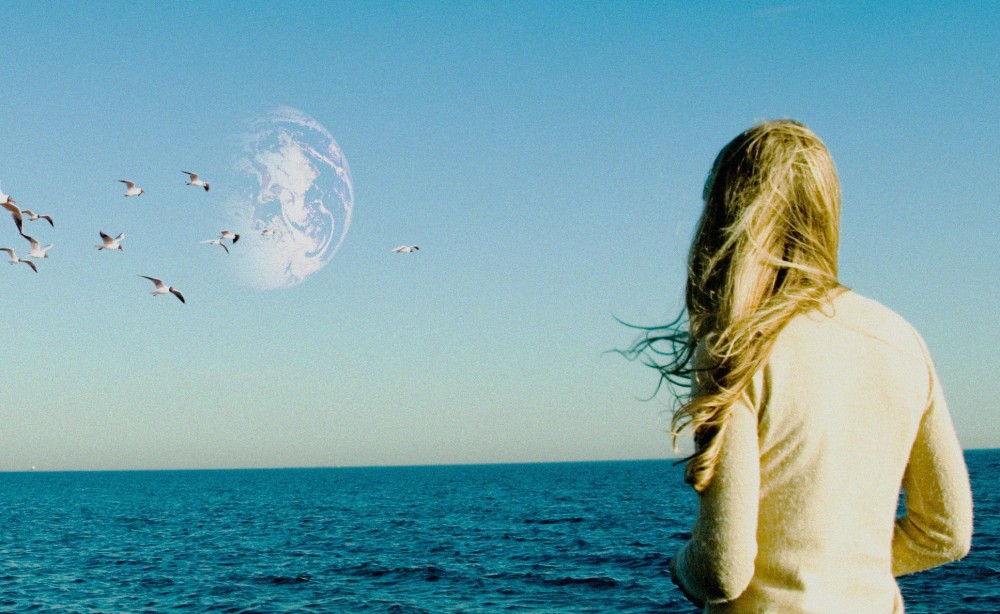âÄúAnother EarthâÄù
DIRECTED BY: Mark Cahill
STARRING: Brit Marling, William Mapother
RATED: PG-13
SHOWING: Uptown Theatre
(2906 Hennepin Ave.)
When Mark Cahill and Brit Marling discuss their first co-written feature, âÄúAnother Earth,âÄù the conversation dances around but never entirely lands on the topic of sci-fi cinema. Dialogue on poetic metaphor and cinéma vérité camerawork seem more applicable to their âÄúreality-with-a-twistâÄù approach to filmmaking.
For the same reasons that few viewers dwell on the technological accuracies of Charlie KaufmanâÄôs âÄúEternal Sunshine of the Spotless Mind,âÄù any fantastical realities in Cahill and MarlingâÄôs debut are subservient to the filmâÄôs thematic center. Not to mention the fact that their scientific twist is only an emblazoning of all discussions utterly human.
Cahill and Marling, who have been creative collaborators since their days at Georgetown University, drew âÄúAnother EarthâÄù from a simple existential musing: What would it be like if you could confront yourself?
The film follows the appearance of EarthâÄôs planetary twin âÄî an identical rock inhabited by identical citizens living identical lives. Marling herself stars as Rhoda, a prospective MIT student whose life is undone after a reckless moment of behind-the-wheel stargazing. Her search for redemption is the narrativeâÄôs crux, and it is also a story that could seemingly be told in absence of any sci-fi trimmings.
âÄúItâÄôs interesting because the story could exist without [sci-fi] completely,âÄù Cahill, who also directed the feature, said. âÄúThe science fiction allows us to zoom in even closer toward what it means to be human and what it means to forgive oneâÄôs self. In a way, itâÄôs essential in carrying that emotion across.âÄù
The film never wanes in its exploration of the self through the lens of this existing other. The idea was born from one of CahillâÄôs short films, in which he interviewed himself. For Marling, the writing process was largely based around expanding her own horizons.
âÄúYou really want to write something thatâÄôs a real challenge for you,âÄù she said, âÄúsomething thatâÄôs very outside of your experience and part of humanity that you havenâÄôt explored yet.âÄù
The heavy focus on humanity is made more apparent by the muted role of sci-fi aesthetics. The ominous âÄúEarth 2âÄù serves more so as a thematic set piece âÄî always looming with a growing intensity âÄî than a plot device. CahillâÄôs aggressive, hand-held cinematography enhances this astronomical realism, but it also softens the fantasy. The magnificent planet seems day-to-day commonplace in CahillâÄôs vision. For him, this scientific twist should be purposeful rather than purely fanciful.
âÄúAt its heart, itâÄôs about the ideas that come across, and if you can feel something about what it means to be human. ThatâÄôs the stuff that lasts,âÄù he said.
This purposeful implementation drew positive response at this yearâÄôs Sundance Film Festival, where CahillâÄôs little film won the U.S. special dramatic jury prize along with a distribution deal through Fox Searchlight. It begs the question: Would Cahill have created a grander film in the wake of more lavish financing?
âÄúI think the story would be precisely the same. We probably would have had better catering and nice cars to bring us to set every day,âÄù he said. âÄúWith the story and the way we tell it, thereâÄôs something raw and right from my point of view.âÄù
That aspect of earnestness is ultimately what makes this small-scale drama so enthralling. The planetary stakes are never as high as the decisions between these grounded characters. It probably stems from the filmmakersâÄô strong convictions in regards to their basic proposal.
âÄúI wouldnâÄôt think twice about going [to another Earth,]âÄù Marling said. âÄúI feel like with making movies, all of that is about trying to figure out what weâÄôre doing here. If there was some kind of possibility to get on a rocket and see something up close that is a clue to that mystery, I would risk it all to go see it.âÄù
Without that sort of emotional investment, âÄúAnother EarthâÄù probably wouldnâÄôt succeed on its small-scale vision. It also probably wouldnâÄôt leave you asking the same kind of bigger questions in the way that it does.








